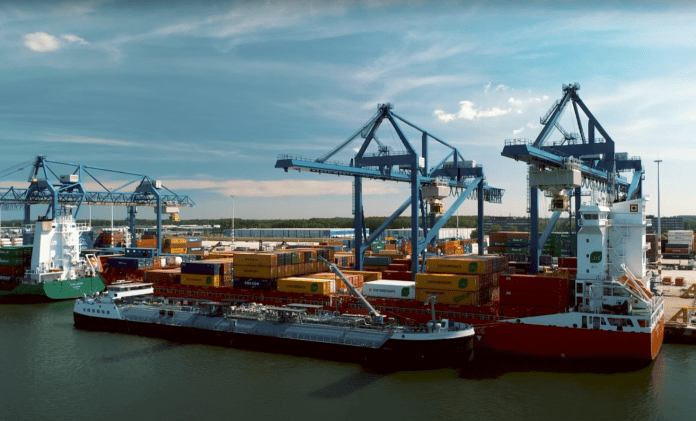The CMA CGM Group and Shell have performed the first Bio-liquefied natural gas (LNG) bunkering trial in Rotterdam with the 1,400TEU LNG-powered vessel Containerships Aurora bunkered by Shell with a nearly 10% blend of low carbon Bio-LNG.
The vessel received around 219 tonnes of LNG, 20 tonnes of which were Bio-LNG.
The bunkering operation, performed by the barge LNG London at the Rotterdam Short Sea Terminals (RST), was successfully conducted by means of a ship-to-ship transfer while Containerships Aurora carried out cargo operations simultaneously.
Shell’s Bio-LNG offering, combined with the dual-fuel gas engine technology developed by CMA CGM, has the potential to further reduce greenhouse gas emissions, including carbon dioxide, by at least 67% well-to-wake (the complete value chain) compared to Very Low Sulphur Fuel Oil (VLSFO), according to a statement.
The French group stated that the results from the trial will give the maritime sector a vital demonstration into the scalability, sustainability and technical compliance of Bio-LNG, which is produced from agricultural and industrial food waste.
In addition to this new milestone in the use of Bio-LNG for shipping, CMA CGM supported in 2021 the production of 25,000 tonnes of biomethane, which is equivalent to a year’s fuel consumption of four 1,400TEU LNG-powered ships, to further accelerate the availability to a wider market.
General Manager of Shell Global Downstream LNG, Tahir Faruqui, claimed that LNG is the first integral step to decarbonise the shipping sector. “LNG offers immediate emissions reduction and has the potential to become a net-zero emission marine fuel given the possible roles of Bio-LNG and synthetic LNG,” he commented.







